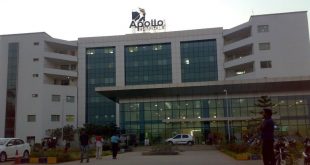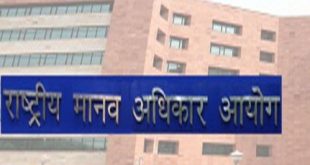Bhubaneswar: The National Human Rights Commission (NHRC) has issued a notice and sought a report from the Odisha government over the closing of a large number of government run primary and upper primary schools due to less number of students.
The report has raised the issue of Right to Education of the young students, mostly belonging to poor families of Scheduled Caste, Scheduled Tribe and other backward communities.
The State Government has been given eight weeks to respond with a point wise reply to the issues raised in the media report, carried by ‘The Hindu’ on the 21st January, 2018.
The Commission has observed that it appears that government schools are lacking basic amenities; the number of teachers is also not adequate.
Opening of private schools cannot be a solution for the shortcomings being faced by the students and the parents in the government schools, the Commission said.
There seems to be extreme need for thorough study of the entire scenario by taking into confidence all the stakeholders to build a healthy environment of education at the primary and upper primary level to tackle the menace of dropouts.
Drawing attention to its suo motu cognizance of a similar media report on the 21st December, 2017 about the decision of the Government of Maharashtra closing Zila Parishad schools, the Commission also observed that without proper education at the primary level, the nation cannot think of well educated youth in future.
The issue needs to be addressed timely by the State as well as Union government, it added.
Accordingly, the Commission has also issued a notice to the Union Ministry of Human Resource Development through its Secretary for its response in the matter within eight weeks.
Reportedly, in the year 2016-17, as many as 828 government primary and upper primary schools were shut down in the State of Odisha for having less than 10 students each.
In the year 2014, a total 195 schools in the State with less than five students were served show cause notices by the government. The students and the parents, reportedly, prefer the residential schools, which have the facility of hostel and food for the students.
According to the media report, in the past year, the highest 124 government schools were closed in the Rayagada district. This was followed by Kandhamal, which has lost 101 schools.
The idea was to merge these erstwhile schools with a primary school located within a kilometer distance or an upper primary school within 3 kilometers, for which the State would provide transport facilities.
It is disclosed by one District Project Coordinator of the Sarva Shiksha Abhiyaan of the State that another 268 such schools have already been identified for closure in Rayagada district which are awaiting only formal approval.
On the point of merging the schools, the officer concerned has, reportedly, stated that there are no such schools under consideration in the Rayagada district and it is also a fact that in case of merger, all the students from the erstwhile schools will not be able to join the new schools, due to geographical restraints.
Reportedly, the general grievance of the parents is that the teachers are not attending to the schools regularly. Even the Anganwadi workers are also not working sincerely in spite of several complaints made with the authorities.
In most of the schools, the students studying in different standards are sitting in the single room and the schools are lacking basic amenities. Representative of an NGO, working in the area, has expressed his concern over closure of the primary schools.
He has stated that the children, who are opting to study in the residential schools, are unable to cope with their village circumstances; they look at it with disdain, have a sense of inferiority, and are always looking for a way out.
Even, the residential schools don’t have adequate number of teachers due to which, large number of students prefer the private schools. According to the media report, another matter of concern is the growing number of private schools in the State. Unlike, the government schools, the private schools send vehicles for the children and have better logistics than the government schools.
 Update Odisha-Latest Odisha News I Breaking News Get latest news on Odisha, Govt. Jobs, OSSC, OPSC, Entertainment, Crime, Sports, and Education
Update Odisha-Latest Odisha News I Breaking News Get latest news on Odisha, Govt. Jobs, OSSC, OPSC, Entertainment, Crime, Sports, and Education



